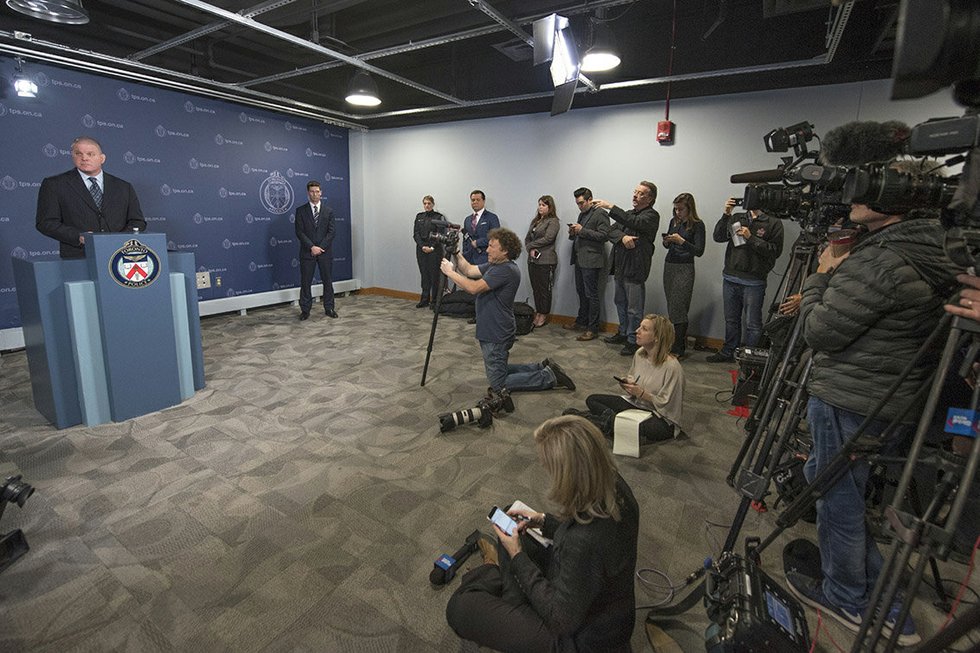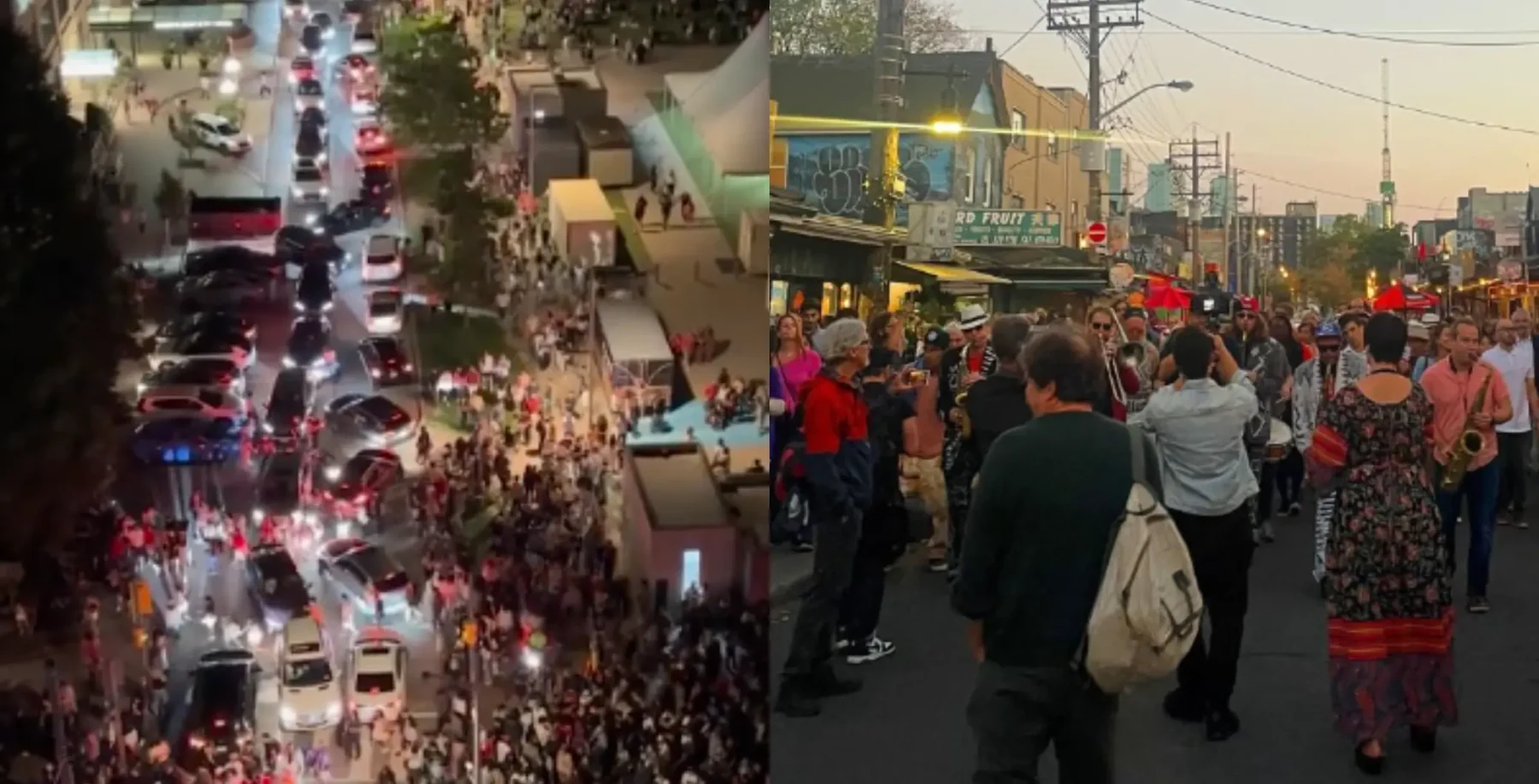
Now that Bruce McArthur has pleaded guilty to all charges related to the murder of eight men connected to Toronto’s Church Street village, all that remains is for the court to pronounce sentence. But it will be some time before the curtain drops completely on the city’s most heinous crime spree and the many questions that remain about the Toronto Police Service’s (TPS) handling of the investigation.
There is the expectation that the independent review into the cases of these missing and murdered men being conducted by Justice Gloria Epstein will provide the answers. Initially, the terms of reference for the review excluded certain areas of the police investigation that could have a bearing on the trial. However, with McArthur’s guilty plea ending the prospect of further legal proceedings, Epstein asked the Toronto Police Services Board (TPSB) to expand the scope of her review. On Tuesday (March 26), the TPSB formally moved to approve the request.
The Board had tried to skirt the issue when it first came up after McArthur’s guilty plea by calling on Ontario Attorney General Caroline Mulroney to order a public inquiry into the case. Mulroney did not oblige, responding that the Epstein review was fully capable of answering all questions.
There are good reasons why Epstein must carry out a comprehensive review of the lackadaisical attention given by Toronto police to the disappearance of the victims, mostly South Asian and Middle Eastern men, and failure of TPS to properly investigate sooner when the community was raising concerns about missing gay men.

The chief has yet to offer a satisfactory explanation why a task force set up to investigate the Village murders back in 2012 was shut down under his watch.
Then there are the several highly questionable, even misleading comments made by Toronto police Chief Mark Saunders who, a month after denying there was a serial killer, saw his investigators arrest McArthur for multiple murders. Moreover, the chief has yet to offer a satisfactory explanation why a task force set up to investigate the murders back in 2012 – known as Project Houston – was shut down, even at one point blaming the LGBTQ community for the police inability to find enough evidence to make an arrest.
In a more recent development, one of the TPS’s own has come forward with new revelations about the force’s mishandling of the McArthur investigation.
TPS Sergeant Paul Gauthier interviewed McArthur on June 26, 2016, after he was brought into the police station on a complaint of trying to strangle a man he was with. A domestic violence investigator had taken a signed statement from the complainant and, according to Gauthier, was present at the McArthur interview, which was videotaped.
Gauthier says that he brought the investigator into the interview “so she could identify any possible inconsistencies.” McArthur was let go based on a review of the complaint and his statement. Gauthier has insisted that decision was approved by his supervisor that night, the staff sergeant on duty, and subsequently “backed” by his “permanent supervisor, the 32 Division detective sergeant.”
In an unprecedented letter to TPS, a copy of which I was able to obtain, Gauthier says that according to TPS procedure, “the required supplementary report was completed and available to ALL (his emphasis) Toronto police officers to access via a simple name search.”
And yet, when news broke about this contact between McArthur and Toronto police (and the fact McArthur was released), Detective Hank Idsinga, who was heading up the McArthur investigation, claimed to have had no knowledge of it. Gauthier has since been charged with professional misconduct after Idsinga wrote to the TPS’s Professional Standards Unit to accuse Gauthier of a “blatant disregard for policy and procedures.”
Gauthier sees an agenda: “My employer has effectively set me up to be their fall guy… simply because they need a scapegoat.”
There is another startling claim in Gauthier’s letter concerning Saunders’s public claim that McArthur had been interviewed before Gauthier interviewed him in 2016. Gauthier says that this “was news to me because he was not flagged… on the night of my investigation.” The clear implication is that there was no record of the prior investigation on the police computer system.

Toronto Police Service
Detective Hank Idsinga, who headed up the McArthur investigation, claimed to have no knowledge the serial killer was brought in for questioning and then let go in 2016.
In fact, Gauthier says he “had no idea” Project Houston had been set up to probe the village murders.
What is going on within TPS over McArthur has taken on the appearance of a family feud.
While Gauthier points to the close relationship between Saunders and Idsinga as a possible motivating factor in the charges against him, he is himself connected as the son of retired Staff Superintendent Rick Gauthier, a TPS veteran who was also head of the Professional Standards Unit.
Can it be that Gauthier’s prosecution is intended to prevent a full scrutiny of the TPS’s – and Saunders’s – past missteps in the handling of the case of these missing men?
Despite Gauthier’s determination to have “the entire truth come out for the public and my community to see” during his discipline hearing (which has been postponed until next month), it remains to be seen whether the hearing officer, who will be appointed by Saunders, will allow the scope of the trial to stray too far.
Only a broadening of the mandate of Epstein’s probe can hope to sort out the crucial issues Gauthier raises related to the roles, competence, integrity and complicity of members of the TPS involved in the McArthur investigation.
Besides internal issues related to the McArthur case, concerns are also emerging about the Toronto police’s handling of investigations into the cases of missing and murdered Indigenous women and girls (MMIWG). According to a source close to the Truth and Reconciliation Commission and the national inquiry into MMIWG, there are several cases about which there are issues. In addition, there are apparently numerous coroner’s inquests where findings on the cause of death may have been affected by inadequate investigations.
Stung by the criticism of its investigation of McArthur, TPS has now created a dedicated Missing Person Unit. But it’s unclear how much serious self-reflection has taken place about what the force can learn from this shameful chapter.
Alok Mukherjee is a distinguished visiting professor at Ryerson University and co-author with Tim Harper of Excessive Force: Toronto’s Fight To Reform City Policing. He served as chair of the Toronto Police Services Board from 2005 to 2015.
@nowtoronto












